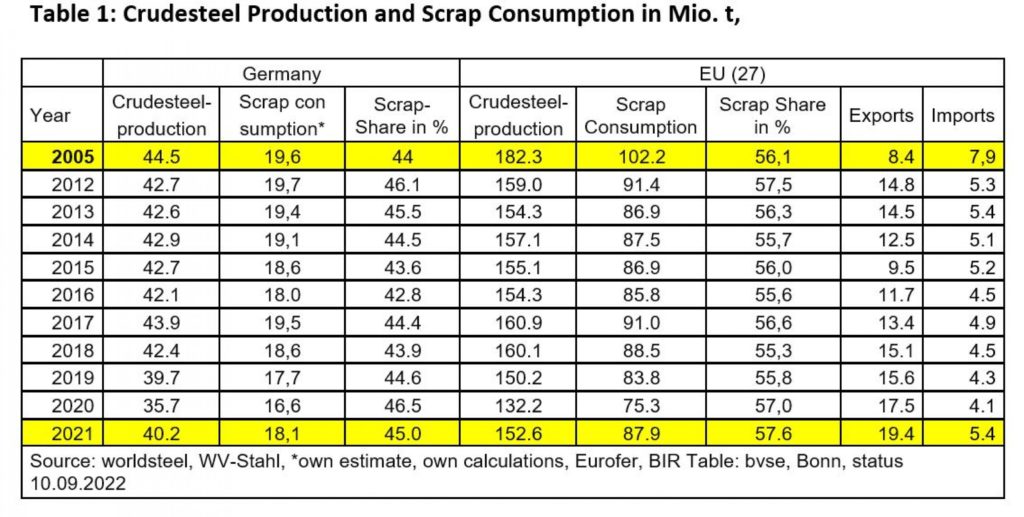In a recently published article, the European steel industry lobby EUROFER has interpreted the steel scrap foreign trade figures in a very creative way in order to put them at the service of its own lobbying.
If EUROFER puts the scrap export increase of the years 2005 in relation to 2021, but on the other hand gives the scrap share in crude steel production exclusively for the past year, then there is a certain gap in interpretation.
The scrap input ratios have fluctuated only very slightly between 55.6 and 57.6 per cent for 10 years. This means that sufficient quantities of scrap have always been available for the significantly fluctuating cyclical production volume. By the way the exports increased since 2005 at about 11 Mio. tonnes but during this time the crude steel production in EU (27) crashed at about 30 Mio. tonnes.
The fluctuations in scrap import volumes to the EU were also small. More remarkable were the fluctuations in exports. This development can be attributed to the lack of possible uses.
The quantities not needed by European plants were exported to consumers in countries, mainly Turkey, where EAF production has a share of 70 per cent. There, the use of the steel scrap has made its world contribution to CO2 savings.
In this context, the question arises why there should be export restrictions if there have never been procurement problems? Why does an organisation that is very quick to threaten politicians with emigration and job losses allow itself to harm raw material suppliers with such massive market interventions?
Incidentally, we are experiencing a massive decline in steel scrap exports to third countries this year. On the one hand, this is due to the reduced scrap volume due to various negative influences such as Corona, supply chain interruptions, the war in Ukraine and the resulting consequences. On the other hand, an increase in the use of scrap in the steelworks can be seen.
One thing is certain: the scrap trade fulfils its function for the benefit of the industry. Why destroy functioning mechanisms? Environmental reasons can only be secondary. It is more likely that the industry no longer wants to face global competition.
It’s really a shame that this association keeps trying to separate us, the recycling industry, and our partners, the smelters. Circular economy can only work if it can take place worldwide. It is a fallacy that closed markets work. Science teaches that a planned economy is not an alternative.


